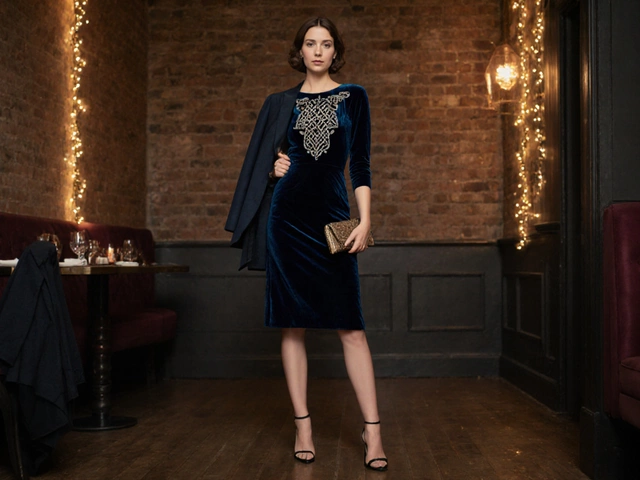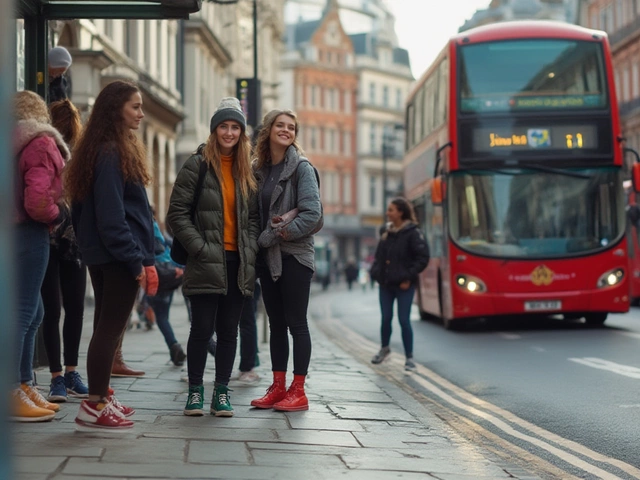Thinking about going barefoot at Walmart in Ireland? Honestly, you’ll probably hit a wall right at the front door. Most supermarkets—even the ones in bigger Irish towns like Dublin, Cork, or Galway—make it clear you need shoes before you come in. It’s not just an old rule someone made up for the fun of it; there’s a real health and safety reason behind it.
If you show up to a Tesco or SuperValu out in your bare feet, expect to be told you can’t shop. And while Walmart isn’t a fixture on Irish soil (the closest you’ll get is deals at Tesco, Dunnes, or Lidl), the rules about footwear carry over from big chain to big chain here.
You might wonder if anyone really checks. Managers and staff do notice, especially in busy stores. Irish retail culture isn’t big on confrontation, but for safety, they’ll ask you to pop on your shoes—even if you say it’s just a quick dash for milk. And if you work in retail, it’s even more strict; shops have policies and checks about footwear, with workers usually required to wear closed-toe, non-slip shoes when on the clock.
- Is Barefoot Shopping Allowed in Ireland?
- Why Shoes Are Required in Supermarkets
- Work Shoe Tips for Retail Workers in Ireland
- Popular Irish Footwear Brands for Shoppers
- Health and Safety Laws in Irish Grocery Stores
- Smart Shopping: Keeping Your Feet Happy
Is Barefoot Shopping Allowed in Ireland?
If you’re eyeing a quick trip to a supermarket like Dunnes, Tesco, or Lidl, you’ll find that going barefoot just isn’t on. Irish stores, big and small, require you to wear proper shoes. It’s not only about looking tidy—there are safety and hygiene rules behind this.
While you might see stories online about people kicking off their shoes in American stores, it’s a different vibe here. Walmart Ireland may not actually exist, but every Irish supermarket has clear signs or policies about footwear. Managers can, and do, refuse entry to people who show up shoeless. This isn’t personal; they’re just doing what’s expected under Irish health regulations.
Why so strict? Well, Irish shops have to follow the Food Safety Authority of Ireland’s guidelines, which stress clean, safe environments. Shoes help prevent things like dropped glass or sharp objects from causing injuries—and nobody wants a lawsuit or someone bleeding on aisle three. There’s also the insurance angle: letting someone in barefoot could void a store’s liability cover if there’s an accident.
Here’s a quick look at what’s common in Irish stores:
- Footwear required for all customers and employees.
- No sandals or flip-flops for staff in most retail environments—closed-toe shoes only.
- Children must wear shoes too. Parents will be asked to put shoes on their kids if not already wearing them.
If you’re a tourist used to more relaxed store policies abroad, just know Irish staff will politely—but firmly—ask you to pop your shoes on before shopping.
| Chain | Barefoot Policy |
|---|---|
| Tesco Ireland | No barefoot shoppers allowed |
| SuperValu | Footwear required |
| Lidl Ireland | Shoes mandatory |
| Dunnes Stores | No entry without shoes |
So, if you forget your shoes at home, your spuds and Tayto crisps will have to wait. Make sure to bring some sort of footwear, even if it’s just runners or wellies.
Why Shoes Are Required in Supermarkets
In Ireland, wearing shoes inside supermarkets isn’t just about following tradition or looking presentable. There are real health and safety reasons behind these rules, especially in busy chains like Tesco or Lidl. The Health and Safety Authority (HSA) actually sets standards that shops have to follow, mostly to keep customers and workers safe from accidents like slips, trips, or stepping on something sharp like a broken jar. Because tiled floors can get wet or messy near the dairy aisle, going barefoot is honestly just asking for trouble—and that’s not even counting the cold!
According to the Food Safety Authority of Ireland, shoes also help keep the place cleaner. Supermarkets have to watch out for hygiene issues, so they need to cut down on anything that lets bacteria spread. Bare feet can be a magnet for germs, and nobody wants that near their food, right?
If you’re working in retail, it’s even more serious. Supermarket staff in Ireland are expected to wear proper work shoes that are closed-toe and non-slip, usually from popular Irish brands like O’Neill’s or Skechers (which has a big presence here). If you work at Dunnes or SuperValu, managers often do shoe checks at the start of each shift.
- Store policies usually mention "must wear shoes at all times" right at the entrance—check the signs next time you’re in your local shop.
- Insurance rules back this up: if you get hurt in-store and weren’t wearing work shoes or other proper footwear, you might have a tough time making a claim.
- Kids get a little leeway—Irish parents sometimes let tots out of prams barefoot for a few minutes, but staff could still remind folks of the rules if they notice.
Here’s a quick look at common causes of supermarket injuries in Ireland sorted by type:
| Incident | % of Total Complaints |
|---|---|
| Slips and Trips | 42% |
| Stepping on Sharp Objects | 29% |
| Spilled Food/Broken Glass | 17% |
| Other Causes | 12% |
So if you’re headed out shopping, best to throw on a pair of comfortable runners or boots. It’s less about strict dress codes and more about everyone getting home safe, with no cuts or bruises to show for it.
Work Shoe Tips for Retail Workers in Ireland
If you work in a supermarket or a shop in Ireland—whether it’s one of the American-style chains like Walmart’s US stores, or a homegrown favourite like Dunnes Stores or SuperValu—you know wearing decent shoes is not just a suggestion. It’s usually part of your workplace policy, tied closely to health and safety laws in Irish grocery stores. Most places will ask for closed-toe, non-slip shoes. This isn’t just to cover bases for insurance or look tidy. There’s a real risk of hazards on the shop floor: dropped bottles, stock trolleys, mopped tiles, you name it.
Here’s what smart retail staff across Ireland need from their work shoes:
- Non-slip soles: This is number one. Shop floors get wet and slippy, especially in fresh food sections or after a rainstorm (which happens a lot in Ireland—welcome to the west coast!). Non-slip means less chance of taking a spill.
- Closed-toe protection: Don’t risk your toes to heavy tins or falling packets. It’s not worth it. Shops like Penneys and even Lidl's occasional workwear events offer budget-friendly solid shoe options.
- All-day comfort: Retail shifts are rarely short. You’ll want shoes with enough support, maybe even a memory foam insole. Trust me, your back and feet will thank you after a ten-hour shift on St. Patrick’s Day.
- Easy to clean: Shoes get grotty fast. With all the dust and food on a supermarket floor, look for styles you can wipe down or toss in the wash.
A lot of Irish workers go for affordable options from Irish brands like Dubarry, or reliable international ones you’ll find in Elverys Sports, Marks & Spencer, or Shoe Zone. Some stores even have deals for staff or suggest preferred suppliers. If you’re unsure, ask someone on your team or union rep what works for long hours and passes the safety check.
| Feature | Why It Matters | Popular Choices in Ireland |
|---|---|---|
| Non-slip Sole | Prevents falls, especially on wet shop floors | Dubarry, Skechers Work range |
| Closed Toe | Protects feet from dropped objects | Penneys, Shoe Zone work shoes |
| Comfort Padding | Reduces pain on long shifts | Clarks, Marks & Spencer |
| Easy to Clean | Makes upkeep simple with daily messes | Any washable trainer or slip-on |
If you need a quick fix on a budget, supermarkets with clothing aisles often run specials on work shoes, especially before Back to School season hits. Just keep an eye out for those in early August.

Popular Irish Footwear Brands for Shoppers
When you're heading out to Tesco, Lidl, or even one of those big Dunnes Stores, what you wear on your feet actually matters. It’s not just about following the store footwear policy; Irish shoppers love brands that mix comfort, price, and durability. We might not have Walmart Ireland yet, but our own shelves are full of good options.
Dubarry pops up everywhere—from people out shopping in Galway to those grabbing groceries in Sligo. They're best known for sturdy deck and country boots that can take on soggy Irish footpaths but work fine in the city aisles too.
Then you’ve got Greenes Shoes, an Irish business that’s been serving customers since 1939. They stock everything from trainers that give you a break from long queue days, to slip-ons perfect for a quick nip around SuperValu. Greenes also stock other familiar brands, making it easy to spot something that fits your style and needs.
Clarks might sound British, but their presence in Irish towns—from Limerick to Letterkenny—means plenty of us rely on them, especially for kids' school shoes and comfy adult options. Not to forget Dunnes Stores’ own-label shoes. They’re easy on the budget and surprisingly long-lasting, especially their non-slip soles that suit workers and shoppers alike.
Here’s a handy look at what Irish shoppers tend to choose:
| Brand | Main Products | Where to Buy |
|---|---|---|
| Dubarry | Deck boots, country boots | Dubarry shops, outdoors retailers |
| Greenes Shoes | Trainers, slip-ons, school shoes | Greenes outlets, online |
| Clarks | Casual, formal, kids' shoes | Clarks stores, Dunnes, online |
| Dunnes Stores | Everyday shoes, non-slip work shoes | Dunnes Stores branches |
If you’re after serious grip, keep an eye out for work shoes with non-slip soles—shops like Ecco and Sketchers have their fans here, too. Irish shoppers care about value and practicality. So, next time you see someone zipping around with a comfortable pair of trainers, there’s a good chance they picked up a local brand with Irish weather and shopping in mind.
Health and Safety Laws in Irish Grocery Stores
Walking around barefoot in any big supermarket here isn’t just frowned on—it’s actually blocked by clear health and safety laws. The main rule comes from the Safety, Health and Welfare at Work Act 2005, which covers staff and, by extension, shapes a lot of what’s expected from shoppers as well. These rules are there for a reason: to keep people safe from slips, dropped items, broken glass, or even just muck getting onto fresh food.
Irish supermarkets, like Tesco, SuperValu, and Dunnes Stores, train their staff to watch out for hazards. No one wants someone stepping on a grape and twisting their ankle or picking up an infection because of dirty floors. Most supermarkets write things up in their policy documents, even if they aren’t pinned up for every shopper to see.
“Footwear should be worn at all times in areas where there is a risk of injury due to sharp objects or spillages. This is part of our commitment to keep everyone safe, staff and customers alike.” — Irish Retail Employer’s Federation
Here are some basics you’ll see followed in Irish shops connected to supermarket barefoot rules:
- Clear signage near entrances: Usually a “No shirt, no shoes, no service” or similar note, especially at chains in bigger cities like Dublin or Limerick.
- Staff required to wear work-specific shoes: Non-slip, closed-toe shoes are the norm—think Skechers Work or Dubarry boots, not sandals or runners with holes.
- Regular floor checks for hazards: Managers will have teams out looking for wet patches and dropped produce to make it safer for everyone.
And in case you’re thinking it’s just nonsense, Irish insurance companies (like Aviva or FBD) keep a close eye on claims involving slips and falls in stores. Grocery shops don’t want to risk paying out for accidents that could have been stopped easily by sticking to simple rules about footwear.
| Common Shop Hazard | Risk With Bare Feet |
|---|---|
| Broken glass near off-licence section | High—major risk of cuts and infection |
| Spilled milk by dairy fridge | Very high—slips and falls, bruises or sprains |
| Loose grapes or veggies on floor | Medium—risk of slipping and injuring yourself |
| Cleaning chemicals mopped onto tiles | High—can cause burns and irritation on skin |
So, the answer’s clear: the store footwear policy in Irish supermarkets isn’t a hassle—it’s there for everyone’s good. Whether you’re staff or a customer, shoes are a must, and that’s not changing anytime soon.
Smart Shopping: Keeping Your Feet Happy
Shopping in Ireland, whether you’re popping into Tesco or catching deals at Lidl, is easier on your body when your feet are comfortable. Walking even a few aisles in the wrong shoes can leave you sore or cranky before you’ve even made it to the bread section. Irish shoppers know that grabbing a good pair of work shoes or sturdy trainers isn’t just for looks—your feet will thank you at the end of a big shop.
If you’re standing or darting about in Irish supermarkets for work, you’ll want something reliable. All the big employers—think Dunnes Stores, Centra, and even Aldi—recommend non-slip soles to prevent accidents and require closed-toe shoes. Irish brands like Dubarry and Greenes Shoes are popular choices for quality and support, and you’ll spot many checkout workers and delivery drivers wearing them.
Here are some practical tips for keeping your feet happy while shopping in Ireland:
- Stick with comfy, closed-toe shoes if you’ll be on your feet for a while. Runners from Skechers or Ecco (available at Arnotts and Elverys) are a safe bet.
- Avoid flat-soled plimsolls or cheap flip-flops—wet floors in stores like SuperValu or M&S can get slippery fast.
- If you work in retail, ask your manager about eligible work shoes; some shops offer partial reimbursement for shoes that meet their requirements.
- Try padded insoles or moisture-wicking socks, especially if you’ve got a big Saturday shop stretching from Blanchardstown Centre to Liffey Valley.
If you’re curious how much your feet actually work during a shop, have a look at these averages from an Irish study on supermarket workers:
| Role | Steps per Shift (Avg.) |
|---|---|
| Checkout Staff | 4,800 |
| Stock Room | 9,300 |
| Floor Manager | 12,500 |
So next time you’re wondering about popping in barefoot or slipping on whatever shoes are by the door, remember—good footwear does more for your day than you might think. Comfortable, practical shoes make every run to the shops in Ireland that bit easier.





